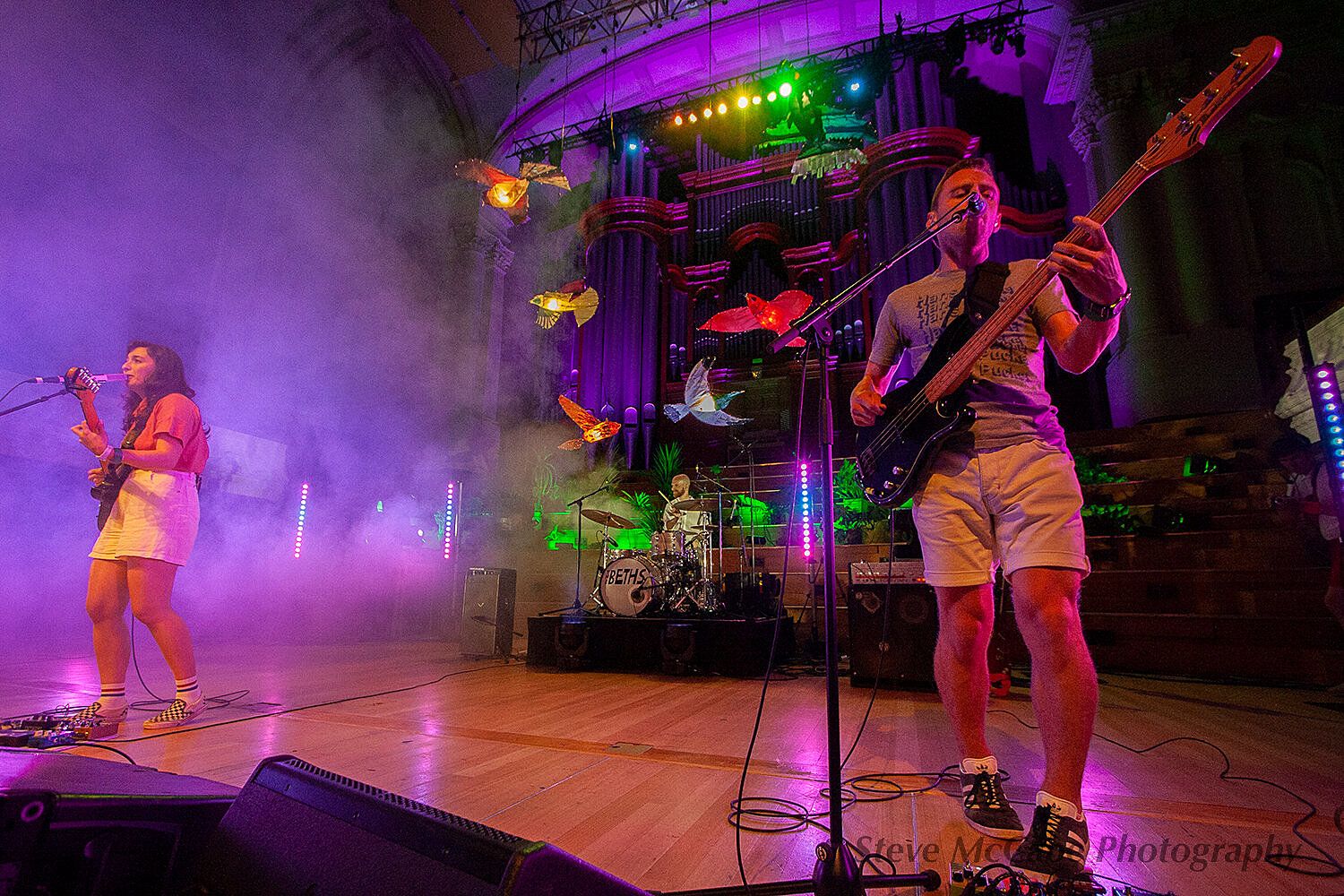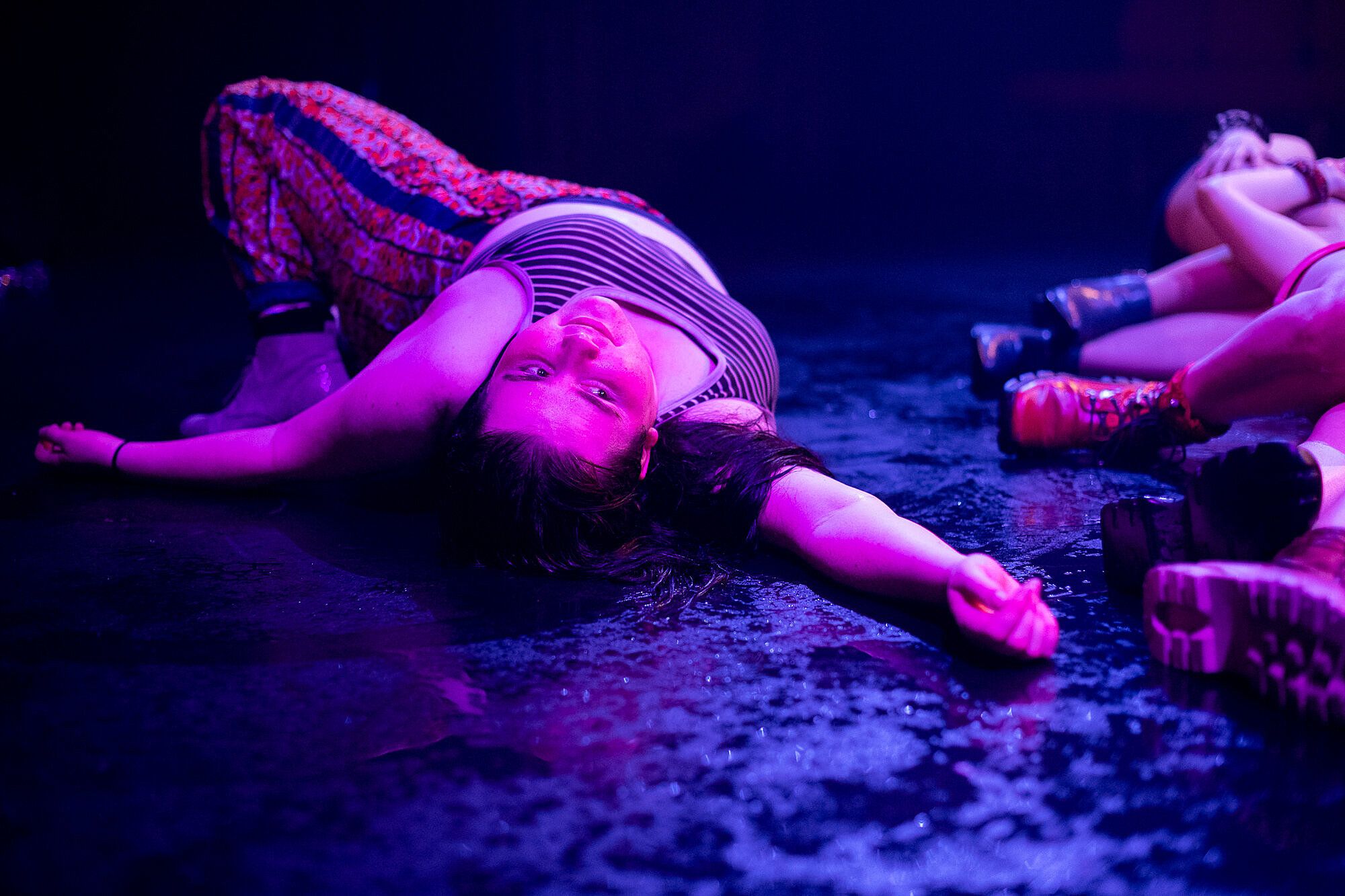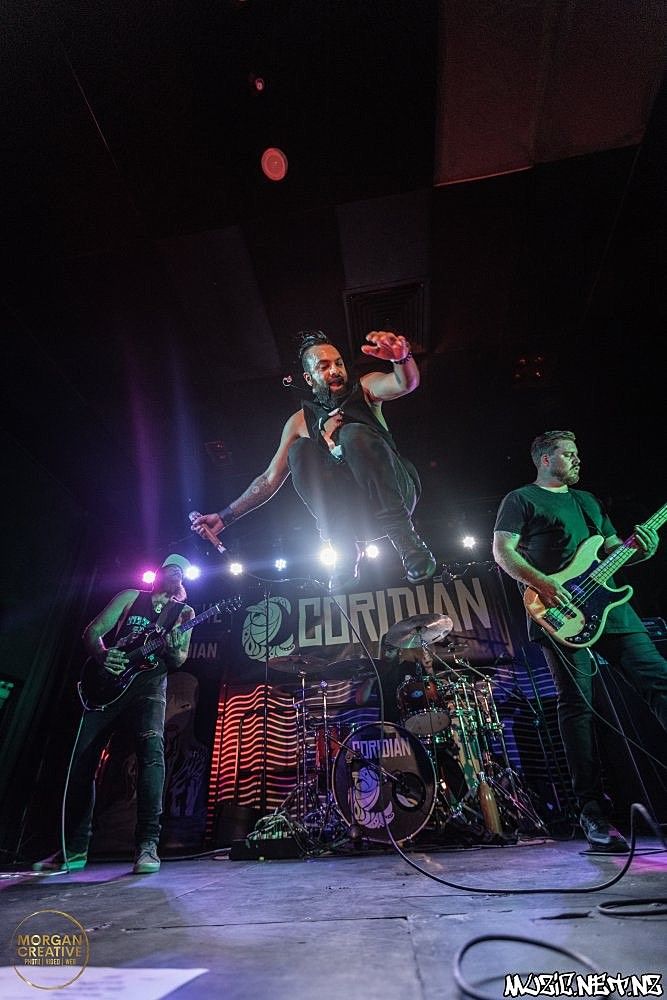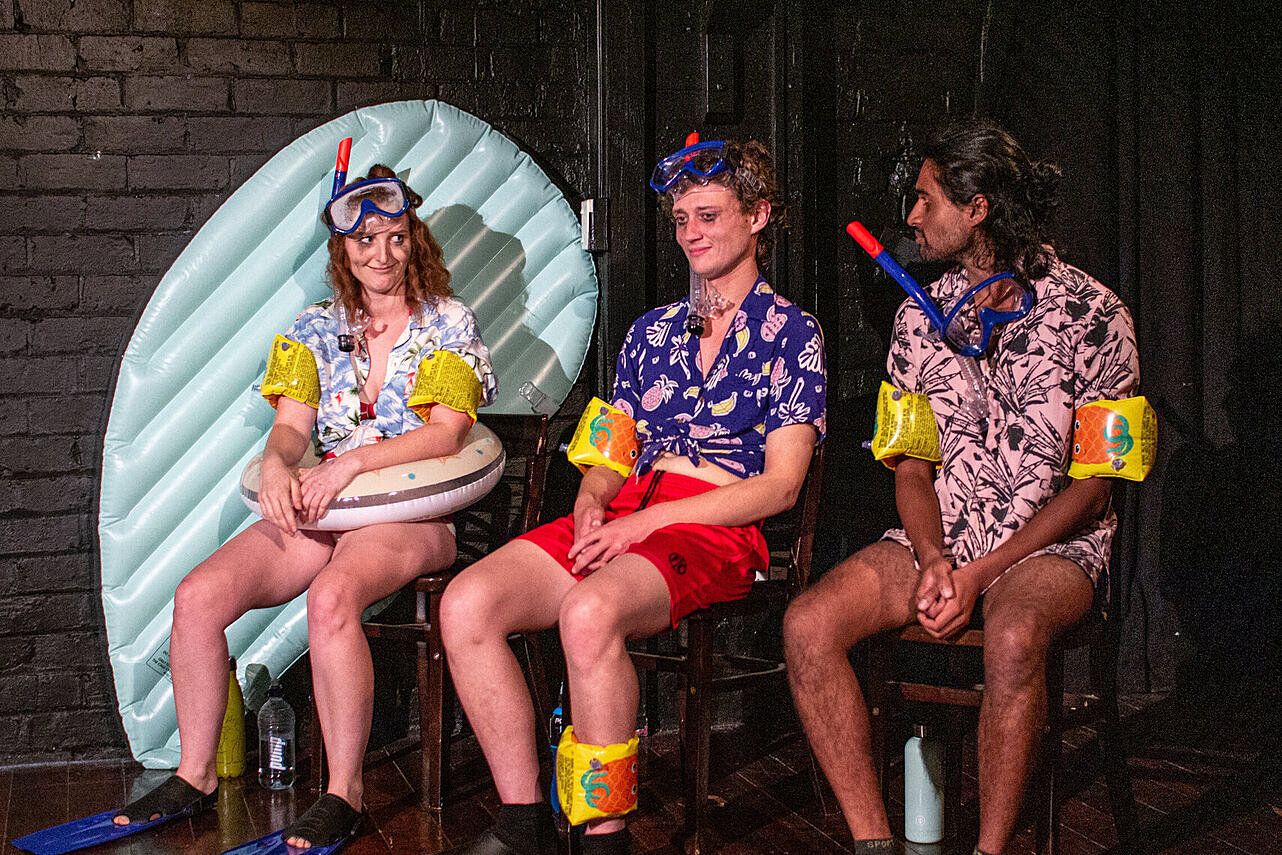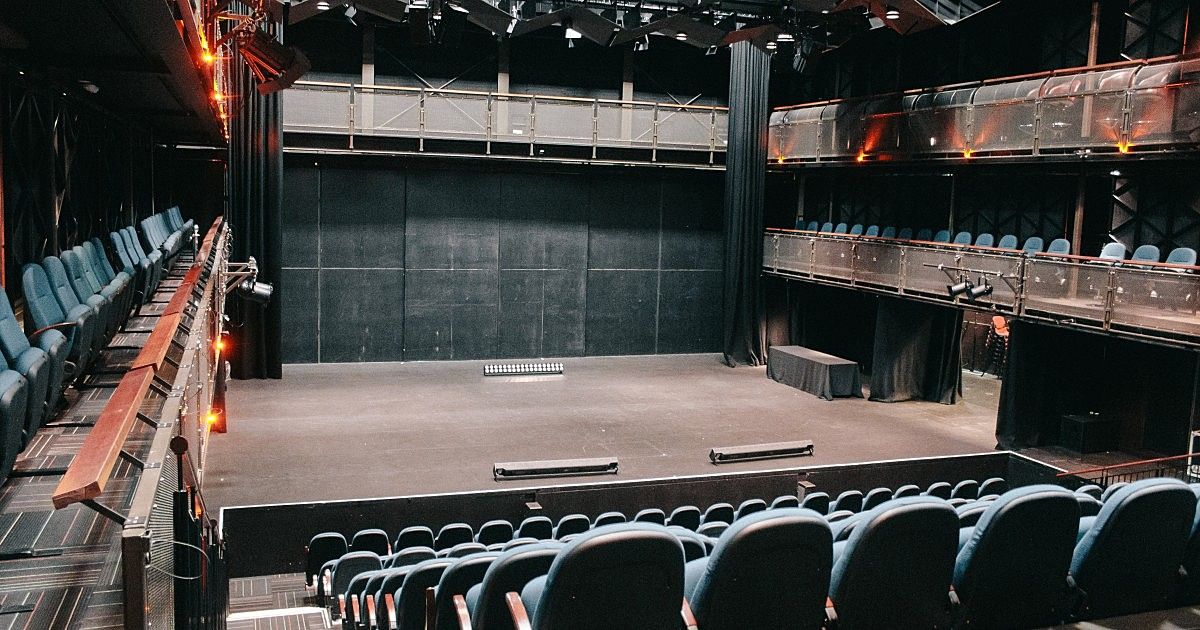Realities of Red
The last few years have been unforgiving for the arts and events industry. Reflection and interviews by Rachael Longshaw-Park.
The last few years have been unforgiving for the arts and events industry in Aotearoa. As a freelance theatre practitioner myself, I have seen my fair share of loss with redundancies, thousands of dollars of lost contracts and opportunities, and the ever-compounding grief that comes with watching your industry and your community buckle under the weight of the Covid-19 pandemic.
I spoke to a group of people across our events industries in an attempt to shine a light on some of the issues people have been facing in sustaining their careers during the pandemic. While I set out to understand financial impacts and what support was needed, I ended up gaining a much wider understanding of how precarious the situation is for the entire industry, looking through to life at Red traffic light and beyond.
What is happening?
Off the back of the Government’s Two Shots for Summer campaign, those in arts and events had been gearing up for the summer season, creating, organising and building back up our industry after lockdowns and disruption in 2021. Summer is the height of income opportunities for many in this industry, and an injection of cash would have been a welcome relief after two years of financial losses, cancellations and setbacks.
But on 23 January 2022, the Prime Minister announced that the whole country would be moving to the Red traffic light setting, immediately wiping out the bigger festivals and shows. In the days that followed, events everywhere were cancelled in droves. It soon became apparent that the current schemes in place to cover these losses were falling dangerously short. After pushback from the sector and media coverage, the government responded with an additional $121 million to be added to the schemes offered through Manatū Taonga Ministry for Culture and Heritage (MCH). However, issues with schemes that had already been raised by industry guidance groups such as Entertainment Technology New Zealand (ETNZ) were not addressed, and there is concern that even with the new funding others will fall through the gaps.
The bigger festivals and shows were immediately wiped out. In the days that followed, events were cancelled in droves
What are the problems?
The Events Transition Support Payment Scheme is designed to support larger, paid-ticketed events with over 5,000 attendees, and the Arts and Culture Event Support Scheme targets events with a capacity of 100–5,000. Both rely on organisers to apply, and to pass that money down through the supply chain and ensure everyone gets paid.
“We're relying on the promoters organising the event in the first place to take the risk in organising the event, and put all the paperwork in place for when it is cancelled to then be able to pay us out. And if they don't do that correctly, or can't be bothered, we're high and dry. And there's no way for us to actually access that directly.” – Jamie Blackburn, co-founder of Pilot Productions
“The financial support needs to be going not necessarily to MCH, because we know that a trickle-down doesn't work. We need to make sure that the financial support is going to our performers, our creatives, our technicians, and our designers, etc. We need to pay our rent now. My landlord won't take an IOU.” – Molloy, freelance technician, lighting and sound designer, and co-owner of Creative Ambience. Reduced to part time due to pandemic financial burdens and relocated to Rotorua to take on a full-time position
Molloy Lighting Engineer for The Beths Townhall, 2020. Photo: Steve Mcabe
The Arts and Culture Events Support scheme clearly outlines that the registrant of the event has “an obligation to make full payment [as if the event had gone ahead] to artists, performers and production crew/organisations.” But this trickle-down method of distributing financial support can take a long time to get to contractors when immediacy is needed.
There are also instances of people at events losing out due to eligibility criteria. For example, artists with stalls at markets that usually take place at festivals like Big Gay Out, an event that was registered for the scheme and subsequently cancelled. Since the scheme does not cover goods for sale, local artists who were planning to sell no longer have the same opportunity for business. Big Gay Out has since launched a Big Gay Virtual Marketplace to encourage community support, and are urging people “to help each other out at this tough time.” But it shouldn’t be up to this community to share around what little money we have in order to keep ourselves afloat.
This trickle-down method can take a long time to get to contractors when immediacy is needed
The Cultural Sector Emergency Relief Fund, with a recent injection of $35.5 million, is a fund of last resort, and not intended to be income replacement. Eligible cultural-sector organisations, including businesses and charities, are able to apply for up to $300,000 (lifted from the scheme's original $100,000 limit). Organisations must be at risk of no longer operating viably by meeting the shortfall between income and expenses over a six-week period. As MCH states, “It is intended to support organisations that are in danger of imminent collapse.”
“No one wants your business to get to that point. So, do you let yourself run into that position? Or do you try avoiding it?” – Jamie
“We've been looking at the criteria required for the Cultural Sector Emergency Relief Fund … we're not quite at that crisis point but we've been pretty close a couple of times, which is a thing that I don’t think any business owner or manager wants to admit. Half of our industry is about public confidence.” –Molloy
Big Gay Out, 2021
Self-employed and sole-trader practitioners can apply for the Manatū Taonga Grant for Self-Employed Individuals, a one-off $5,000 grant. Thankfully, this grant bypasses the top-down method of funding and allows payment to go directly to practitioners. However, with a delay of over three weeks between the announcement and applications opening on 28 February, this was a long time for those urgently needing assistance. ETNZ’s Omicron survey found that 27 percent of those surveyed didn’t think they could “stay solvent for three months without targeted support and many don’t expect they can last that long.”
The one-off grant of $5,000 is roughly the same amount of money you would receive on eight weeks of the wage-subsidy payment scheme, working out at $625 per week (this compares to $600 a week before tax on the full-time wage subsidy, or $359 on the part-time wage subsidy offered in 2021). Since this is framed as a grant, it stands to reason that the payment will be tax exempt, like the Creative New Zealand grant released in 2020. However, MCH suggests that to work out whether you need to pay tax, you should talk to your tax advisor or accountant.
The wage subsidies and one-off grants work out to be significantly less than the living wage
Both the wage subsidies and one-off grants work out to be significantly less than the living wage, which at $22.75 per hour equates to $910 per week before tax at a full-time rate. At the time of the grant opening, we were already sitting at five weeks post-Red alert announcement, giving those who managed to apply for the grant only three more weeks’ income before they were back in the same boat once again. Clearly not a long-term solution.
The practitioners I spoke to raised a number of concerns about both schemes:
“While the new announcement will help somewhat, it has left behind production companies, venues and organisations with staff and overheads, who are only able to get what organisers apply for. A lot of events fall short of being covered for various reasons. Employees fall short of being covered by the $5,000 one-off payment and frankly people are starting to mothball warehouses and figure out how they’re going to let staff go and sell what they can already. It’s heartbreaking.”
“It’s a great start and will help, but it’s missed the mark on covering a large sector of the industry who, without further support in the way of a targeted wage subsidy and loss of income-based Resurgence Support Payments, will not be here in four months’ time, when most people are rescheduling.”
“Some companies have told me they’re looking at under 10 percent of their income even with the scheme, compared to pre-pandemic. I feel the emergency grant will get used a lot in the coming months.” – Tom Anderson, freelance production manager, promoter rep, co-owner of Whammy Bar and director of Save Our Venues
"Some companies have told me they’re looking at under 10 percent of their income even with the scheme, compared to pre-pandemic"
Tom Anderson. Photo: James Rua
For events going ahead under Red restrictions (100-person audience cap with 1-metre distancing), those working are forced into vulnerable situations, having to advocate for themselves but keep customers and patrons as safe as possible. The tension between grabbing what little income opportunities are available and prioritising safety is a heavy burden for desperate people to bear.
“There is one event I’m working on which is going to be in quite a high-risk location: a mall. Here’s the tricky thing: the people I’m working for don’t feel like they want to mandate vaccine passes, so it leaves it to me to navigate who's vaccinated and who's not. And as a face painter and balloonist, my job requires direct physical contact right by the mouth area.”
“Gathering outside is one thing, but usually we have huge queues of people waiting for an hour … just because we technically can, should we be gathering crowds together in an enclosed space? Especially if there are unvaccinated people? I feel like I’m having to choose between the income that I’m in no position to say no to, or protecting the vulnerable, or doing what's best for the community, which is really shit.” –Anon, freelance actor, owner of a children’s entertainment business
“My whole thing is health and safety, and mental health in theatre, and I've got to think about what if a cast member gets sick? … Do we as actors need to wear masks? What is the risk to us from the audience? Is it safe to perform if the audience is that close to us? Is there any point in Fringe going ahead with audiences capped to a minimal level when there's active Covid-19 in the community? It's just like this massively stressful time between being prepared, and panicking. I do think I'm losing.” –Emma Maguire, professional theatre maker, recently moved into a full-time job in communications for financial security
Emma Maguire in POWER, BATS Theatre, 2019. Photo: Essi Airisniemi
“Everyone I spoke to supports the health response, you know, no one wants to be part of an unsafe event. Everybody wants to do the right thing.” – Tom
“I know a lot of people in my community that don't really want to go out at the moment, and trying to put on any kind of show in that environment can be quite scary, trying to get people to come out too. We don't want to be a ‘super-spreader event’ either. And there's so many cool venues, especially the really small ones, and we want to support them. But at the same time, it's a double-edged sword because we hope they can continue being open and make money, but you're still worried about leaving the safety of your own home.” –Kris Raven, Coridian bandmember, also has a full-time job in a different industry
Coridian. Photo: Morgan Creative
We’ve already seen venues close their doors due to the risks. Q Theatre cancelled its summer season, Basement Theatre cancelled or postponed its shows, and festivals like Auckland Pride, Auckland Arts Festival and Aotearoa New Zealand Festival of the Arts cancelled most of their live performance programme. It’s a clear indication that even if venues and promoters can meet the 100-person event restrictions they don’t feel they can operate safely or financially.
Some shows under 100 capacity are eligible for funding if it’s a multi-show event and the cumulative audience is greater than 100 people. One-off shows, though, such as music or poetry gigs, are not covered by the Arts and Culture Events Support Scheme. And for shows that can theoretically continue for 100 people or less, organisers are then faced with the choice of making a guaranteed loss or pulling it.
“The capacity for these shows has been significantly reduced. Two of our shows went from around 60 to 11 seats.” – Emma
Neither are great options that lead to stability in this sector. In late January, Whammy Bar hosted intimate gigs with Jazmine Mary and Julia Deans at a 50-person capacity, but co-owner Tom Anderson isn’t sure if they can continue.
“The staff had a really lovely time, and punters had a very special experience sitting seated and masked watching a band [where] you would normally be standing … with a much bigger number of people. It’s quite a special thing, but also not a long-term solution in any respect. The losses for the bar doing a couple of those versus a few sold-out shows this weekend, which is what we were looking at in both of our venues … It's a minuscule percentage of income, but it was an important thing to do.” – Tom
We’ve already seen venues close their doors due to the risks
Practitioners also raised concerns about the casual nature of contracting work in arts and events, and how as a freelancer it can be difficult to prove your income or account for lost opportunities.
“Half of these things don't have proper contracts. I have no idea how to prove to the government that I'm losing money.” – Emma
“This is the artist’s fucking deal. We don't know what we don't know, we randomly get jobs at the last minute because someone else is too busy with other jobs. That's not going to happen anymore [with Covid-19] and because there's no evidence to prove that, I cannot get financial support … They [ministers] really just don't understand because there's no lived experience of what it's like to be an independent artist.” – Amber Liberté, choreographer, dancer and performer for screen and stage
“The nature of contract work is so changeable, it would be hard to prove that I had lost income even though I was shortlisted for a $10,000 advert. But then, the ad got cancelled because of Covid-19 … and also because there is income you literally get a week or two out in advance, it's hard to project those things sometimes.”
"They don't understand because there's no lived experience of what it's like to be an independent artist"
Amber Liberté. Photo: Jocelyn Janon
And the list goes on. It’s not just freelancers who are losing out, with theatres and other venues closing down, ushers, hospitality staff and other casual workers having their shifts cancelled. And while the new Covid-19 Support Payment is welcomed by many, it doesn’t ensure wages are paid in the way that wage subsidies did in the past. The idea that businesses can pay wages when making losses, or that most freelancers and casual workers can put away emergency funds after the last two years, is laughable. The reality is most of us are surviving week to week because we don’t have any other choice if we want to remain in the industry. And the nature of this industry means that often your supplementary income is based on work generated by events.
“People going out to try and find jobs outside of this sector will find it hard to get work, especially those who are older, because companies today want young, business-minded people. It's really hard to prove on an art CV what you actually do, because you’re kind of a jack of all trades. Corporate companies don't see an arts director CV and be like, ‘Oh, you're really good at managing people’.” – Amber
“It’s really hard to justify even being a contractor now. Both my income streams are dependent on live events and I’m about to lose about 60 percent of my work. People don’t want to programme or hire us, because they worry that their events will be cancelled. Or they’re only willing to hire you if they can cancel with a complete refund, or not pay until the day. So I can't recoup because there's just absolutely no certainty if events can go forward at all.”
"If you're single with no dependents and low outgoings, the Resurgence Support Payments and wage subsidy are just enough for you to live on. But if any of those other factors change, you're fucked"
The wage subsidy, Resurgence Support Payments (RSPs) and short-term business loans have been touted as a saving grace. Many have called for their reinstatement as a solution, but they’re not a catchall solution.
“If you're single with no dependents and low outgoings, the RSP and the wage subsidy are just enough for you to live on. But if any of those other factors change, you're fucked.”
“The RSP and the wage subsidy went a long way, but weren't completely covering our lease and fixed costs. Plus, all the support based on full-time employees is for corporate-style businesses and completely misses those supporting freelancers on an event basis, as is the case for most theatre and arts companies.” – Molloy
“Having the RSP and the wage subsidy saved my ass and so many people's asses last year. I was actually able to make stuff without the pressure of worrying about each week … which meant I could actually give my artist friends or contemporary artists support where I could see they were struggling.” –Amber
There’s privilege in being able to take the job, but it’s not a long-term fix, and I have no energy or ability to continue nurturing the career I had been building for the past decade
As a sole trader myself, the wage subsidy and RSP were enough to meet my needs, and it’s due to the recurring RSP that I have the capacity to even write this article. It gave me a buffer to survive on when work didn’t pick back up again in summer, and covered my rent and some bills until about mid-February after we were plunged into Red. But I am single with no dependents, so if that’s where we are setting the bar for a liveable income then anyone outside of that narrow margin is being set up to fail in the coming months. And even with such low outgoings, ultimately it wasn’t enough for me, and in late February I was forced to take on a temporary contract as part of the Covid-19 response. There’s privilege in being able to take the job, but it’s not a long-term fix, and I have no energy or ability to continue nurturing the career I had been building for the past decade.
For those who can’t find work right away there is WINZ, but you’d be looking at even less income that offers no financial security or mobility. While WINZ is a crucial social safety net, the current thresholds are in dire need of reform as they sit far below the living and minimum wages, and the full-time wage subsidy offered in 2020/2021, leaving many unable to pay their bills and possibly taking on more debt. Nor is WINZ artist or practitioner friendly, with case workers often misunderstanding the nature of work within our sector and forcing people into work outside of their skill set. This can be a huge setback when you’ve been building years of momentum to get to where you are.
"A loan relies on there being an end in sight. If we have a theatre with 600 seats in it, but can't sell any this week, how can we suddenly sell 1200 seats every night next week?"
The wage subsidy, Covid-19 Support Payments, Resurgence Support Payments and short-term business loans have been instrumental in keeping a lot of people afloat over the past two years. They have guaranteed that some people have managed to pay their core bills, but for a lot of businesses they haven't been enough.
“I'd say that through the August lockdown last year we had about $80,000 of profits sitting there ready to go, which we usually would use to grow our business, but we used all of that up just staying afloat. And that's with all the support and payments.” – Jamie
While the Small Business Cashflow Scheme can provide assistance of up to a maximum of $100,000 to businesses employing 50 or fewer full-time employees, loans in a time of financial loss are not a reasonable solution.
“A loan is a short-term thing that relies on there being an end in sight. If we have a theatre with 600 seats in it, but can't sell any this week, how can we suddenly sell 1200 seats every night next week? There's no money to pay back the loan … I think it's ignorance, it’s a lack of understanding of how the industry works.” – Jamie
“As a company, we would consider applying for it, but with the last 22 months of disrupted business, particularly Auckland being locked down, I'm not sure we'd have the cashflow to be eligible anymore.” – Molloy
The arts and events sector requires ongoing targeted support with equitable access
What kind of support do people need?
With few places for people to turn, we need to do away with the Government’s current reactionary approach. The arts and events sector requires ongoing targeted support with equitable access. The government must be proactive in ensuring the sustainability of our industry through this pandemic and beyond.
“[We need] targeted wage subsidies, targeted RSPs, loss-of-income-based funding and pools for larger organisations that have more than just wages to cover … we've seen some great schemes that have come through to give people the security to be able to plan, and now we need more to be able to give people the security to stay in the industry, so that when we come back, they're still here.” –Tom
"The [wage subsidy] would make a massive difference, it would be helping people pay their rent and put food on the table, but it's not enough. But if we fund a combination of the wage subsidy and the resurgence payments, and something for businesses to address their overheads.” –Jamie
Rachael Longshaw-Park in an Open Apology, Basement Theatre, 2020. Photo: Ankita Singh.
“Bring back the wage subsidy, even if it's targeted specifically to people that are using the performance tax codes, I mean, film should also be included at this stage. So should our venue pals because they're all hurting, but like anything, we all require a large gathering of people to be able to do our arts. We should be supported in this.” – Molloy
“I think our venues need support … It's welcome that the government has provided Covid-19 relief for the arts, but further thought needs to be considered in regards to wider support. The pandemic is not going to go away, and what happens in six months or twelve months? A sustained artists' income would be very welcome in the dire straits that we are facing in this industry.” – Emma
“I'd like to see event insurance for small and medium productions that don't have ridiculous red tape around them. And I would like to see the government invest in reviving the arts scene and creating a viable infrastructure to allow art and artists to not only survive, but to flourish.”
This industry is interconnected in ways that mean when you take out one piece, everyone suffers from that loss
The ETNZ survey shows that “95% of respondents would like to see a sector-specific wage subsidy scheme or similar form of financial assistance to support our freelancers and businesses”. The need is clear, but if the government won’t reintroduce the wage subsidy at Red, then funds held by the MCH need to be easier to access. The survey also reports that people have seen “an estimated loss of 85% of their revenue for the period from 24 January to 1 May 2022 due to postponements or cancellations caused by the move to Red”. This equates to an estimated $40 million loss for the 280 people alone who responded to the survey. As this survey had a limited sample size, it’s clear the losses must well exceed this over the three-to-four-month period.
What is at stake?
This industry is interconnected in ways that mean when you take out one piece, everyone suffers from that loss. As suppliers shut shop and skilled workers leave the field for good, the quality of what we can provide will suffer.
“We're in a position now where the industry has kind of regulated itself somewhat to the point where there is a place for all the suppliers … if we lose any of those, that leaves a massive hole. When things come back and with force, and all of a sudden we need trucks, stages, PAs, lights, crew, security, and all of that, they simply won’t be there. We end up with a situation where we're not in a place to provide those, or with less-experienced crew members or inferior products. We've jumped backwards 20 years in terms of international touring.” – Tom
As a sector we cannot sustain any more losses or we stand to lose our community and livelihoods.
“I think that we're going to lose many valuable, important places where our history is, and where our memories are.” – Emma
Empty Theatres at Red. Q Theatre cancelled its ‘Summer at Q’ Season due to Omicron
“Unless something happens to start financially supporting and educating artists (e.g., a wage subsidy) the only artists who are likely going to continue making art ... are going to be artists who can afford to do it, which could exacerbate the elitist nature of the sector. If it's just the people earning money who are making art (because they have more time and more resources, etc.), and there's no fringe artists able to do stuff, and there's no marginalised or minority groups, no BIPOC, no LGBTQ … then the arts [are] going to become gross, homogenous, unrisky and boring.” – Amber
“I predict we'll lose a lot of talent and people will leave the country. People will shut down their businesses. We won't have people putting on shows at Civic, which means all those restaurants, cafés and bars that rely on people being in the city are affected. It affects Uber drivers and the transport system … We’ll live in a slightly more unexciting and less colourful country.” – Jamie
It’s a grim outlook, but there is an opportunity for the government to not only speak to our current issues, but to act pre-emptively and introduce measures that commit to creating a healthier and more robust industry going forward.
"I hope we come through the end of this with an industry still largely intact"
What are people hopeful for?
“Perhaps arts will shift to be less product focused, and more process focused, which means we will realise that we actually need arts every day in our lives to help us mentally, physically, emotionally, socially … I want to see people realising that the process is as important as the product. I would really like to see an artist benefit introduced.” – Amber
“I hope we come through the end of this with an industry still largely intact. And that we're able to continue putting on great events. If we could have a scheme that meant we could administer a bunch of upskilling and training programmes for people already within the industry … You know, we could come out of this with a more skilled workforce than we had before.” – Tom
“Honestly, I'd like to see a universal basic income for artists. It would give me the freedom to put the community first and make better calls when it comes to running high-risk events … to find more viable and sustainable ways of existing in the art industry, and not burn out.”
“I think if they have a system that helps people now but also helps the industry get back off the ground after that … that's really important. ‘Oh you guys are free to do what you want like’, well, actually the theatre show or music festival can't continue anymore because it's lost so much money … I know they've been doing tour grants for music tours and stuff like that … It'd be cool if that could continue … because we don't know what's going to happen next.” – Kris
“I was chatting with one of my festival pals earlier today. And we were talking about an artist wage, or even a UBI. How if we could establish that we could go back to focusing on thinking big things and doing big things, and trying to figure out how to make a transformational society. Because if our fundamental needs are met we actually have space to do that.” – Molloy
Links to all the current schemes available and supporting information:
The Events Transition Support Payment Scheme
The Events Transition Support Payment Scheme – Eligibility Form
The Arts and Culture Event Support Scheme
Supporting information for registrants
The Cultural Sector Emergency Relief Fund
Key Information for Applicants
This is an updated version of an article originally published on Theatre Scenes.
Feature image: Jocelyn Janon

